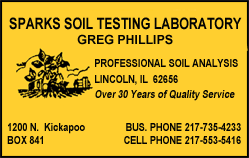| ||||||||||||
| ||||||||||||
When they came to the accident, the debris littered the track, and the only thing Franchitti knew for sure was there had been a significant wreck. It wasn't until he'd been out of his car some five minutes that he learned someone was hurt, that it was Wheldon, and as a flurry of activity erupted along pit road, the severity of the situation became clear.
But it was hectic, details were fuzzy and emotions were raw. When it became clear that Wheldon had been killed, Franchitti described a scene of confusion.
Grief-stricken drivers weren't sure what to do next. They are born and bred to be racers, and racers clean up the track, get back in the cars and finish the show.
On this day, though, nobody felt much like continuing, and those feelings were in direct conflict with all they've ever known. So when IndyCar CEO Randy Bernard decided to cancel the race and close with the tribute to Wheldon, Franchitti said there was relief.
"The drivers were very concerned. Each person was very confused, and Randy, ultimately, he really as a leader did a good job and took the decision out of our hands," Franchitti said.
It's a decision that went against hardened racers, who have criticized Bernard for calling it off.
That's too bad, Franchitti said.
"He made absolutely the right choice," Franchitti said. "Especially when I got back in the car and I realized how emotional I was there, and I thought 'Absolutely right decision.' I think most of us couldn't drive because the tears, we couldn't see where we were going."
The ongoing investigation into Wheldon's accident could bring changes to IndyCar, in the new car that Wheldon spent all year developing as the test driver, in the venues where the series races, even the process in which drivers are ruled eligible to compete.
"I love the fact that the IndyCar series is the mix of all the disciplines and to win the championship, you've got to be strong at all of them," Franchitti said. "So we've got to be on ovals, and it's got to be safe. It's got to be a lot safer."
Even Vegas?

"You can always look back with hindsight, but we've raced on the 1.5-mile ovals before," he said. "With the information they had, I think they believed what they were doing was right. Going back now, I wouldn't do it, because we know the result."
After a three-hour driver meeting Monday, followed by another three-hour meeting among a smaller focus group to discuss the new car, Franchitti was convinced that "no stone will be left unturned." He doesn't have any idea what will happen next, if the series will continue to race on high-banked ovals or if they'll ever go back to Las Vegas.
The only thing he knows for certain is that the only way he can honor Wheldon is to get back in the car on Wednesday and start working toward improvements.
"You cannot blame one person for this," he said. "Motor racing is not safe. We've known that since I started racing, and I don't think we're being cavalier in saying that. But we have to move on, look at what we do now. We are going to look at all those elements (of the accident) and try and take as many of them out of the equation, to do whatever we can to make this as safe as we possibly can.
"That's the next step. That's where we're going, that's what we're trying to do. And when I say move on, make the right choices. That's the next step, isn't it?"
[Associated Press;
Copyright 2011 The Associated Press. All rights reserved. This material may not be published, broadcast, rewritten or redistributed.
News | Sports | Business | Rural Review | Teaching & Learning | Home and Family | Tourism | Obituaries
Community |
Perspectives
|
Law & Courts |
Leisure Time
|
Spiritual Life |
Health & Fitness |
Teen Scene
Calendar
|
Letters to the Editor